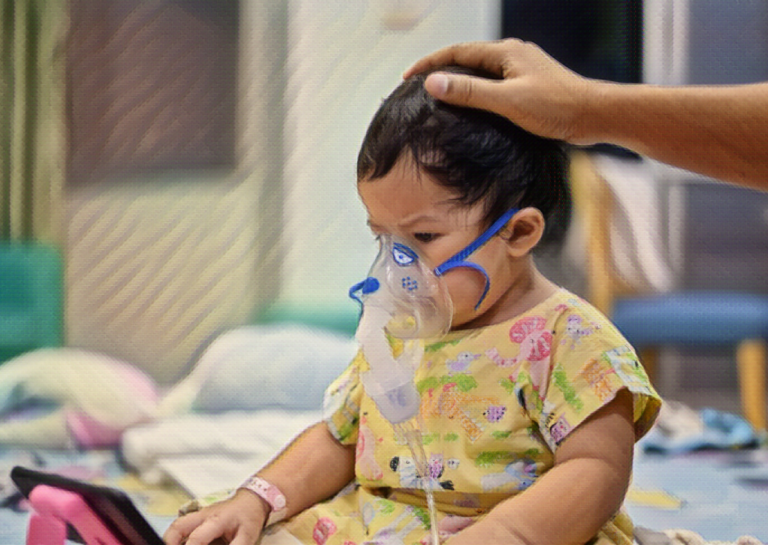Respiratory syncytial virus (RSV) is a common respiratory virus that affects many children worldwide, especially during the winter months. It is the most common cause of bronchiolitis (inflammation of the small airways in the lungs) and pneumonia in children under the age of 1. RSV can lead to a variety of symptoms, including coughing, wheezing, and difficulty breathing. It is important to understand the symptoms, causes, treatment, and prevention of RSV in children in order to manage and prevent this condition.
Symptoms
The most common symptoms of RSV in children include:
- Cough: A persistent cough is the most common symptom of RSV.
- Wheezing: Children with RSV may also have wheezing or whistling sounds when they breathe.
- Shortness of breath: Children with RSV may have difficulty breathing, especially during physical activity.
- Rapid breathing: Children with RSV may have an increased rate of breathing.
- Fever: A low-grade fever may be present.
- Runny nose: Children may have a runny nose, along with nasal congestion.
Causes
RSV is caused by a virus that is spread through respiratory droplets when an infected person coughs or sneezes. The virus can also be spread by touching a surface or object that has the virus on it and then touching the mouth, nose, or eyes.
Treatment
Treatment for RSV typically involves supportive care to manage symptoms and prevent complications. There is no specific antiviral medication for RSV.
- Medications: Over-the-counter pain relievers, such as ibuprofen or acetaminophen, can help to reduce fever and chest pain.
- Inhaled medications: Inhaled bronchodilators, such as albuterol, may be used to open up the airways and make breathing easier.
- Oxygen therapy: In severe cases, children may require oxygen therapy to help them breathe.
- Hydration: It is important to keep children well-hydrated, as this can help to loosen mucus and make coughing more productive.
- Rest: Children with RSV should get plenty of rest to help the body fight off the infection.
Prevention
There are several steps that can be taken to prevent RSV, including:
- Handwashing: Proper handwashing is the most effective way to prevent the spread of infection.
- Avoid close contact with sick individuals: If someone in your household has RSV, try to avoid close contact with them until they have recovered.
- Immunizations: Some children at high risk for severe RSV infections may be eligible for a preventive medication given as a monthly injection during the RSV season.
- Avoid smoking and secondhand smoke: Children exposed to smoking and secondhand smoke have an increased risk of RSV.
- Keep the environment clean: Regular cleaning and disinfecting of common surfaces, such as doorknobs and light switches, can reduce the spread of the virus.
Citations
- Centers for Disease Control and Prevention. (2021). Respiratory Syncytial Virus (RSV). Retrieved from https://www.cdc.gov/rsv/index.html
- American Academy of Pediatrics. (2019). Respiratory Syncytial Virus (RSV). Retrieved from https://www.healthychildren.org/English/health-issues/conditions/chest-lungs/Pages/Respiratory-Syncytial-Virus-RSV.aspx
